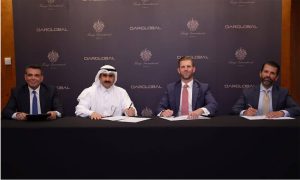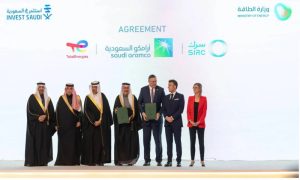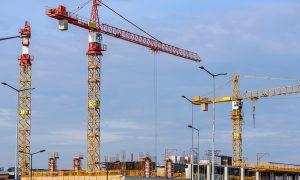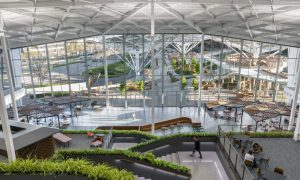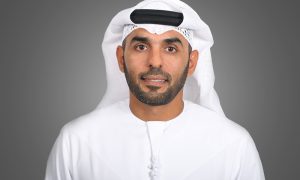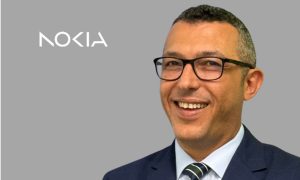A new chapter
The day after receiving an award for services to the construction industry, Drake and Scull CEO Khaldoun Tabari tells The Big Project why his work is far from done
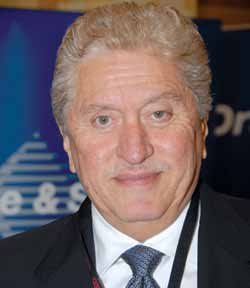
The day after receiving an award for services to the construction industry, Drake and Scull CEO Khaldoun Tabari tells The Big Project why his work is far from done.
“You are always humbled by something like this, it takes the best out of you. “But if I want to say something, it’s that you get the life achievement award when you’re done. Because what’s after life? Death. It’s like we’ve had enough of you, make room for somebody else. I don’t feel old, but as you get older I think the next stage is not to receive awards, but to mentor somebody.”
As the CEO who led Drake and Scull PJSC through a worldwide financial crisis to a period of stability and further growth, Tabari’s industry experience is vast.
Eventually you get the hang of it like other countries but it’s not a case of just walking in and hearing about these budgets and just starting up. It doesn’t work like that”
Drake and Scull Engineering was formed in the UK in 1964, with Drake and Scull International opening in Abu Dhabi in 1966.
Since then, the company has diversified to incorporate three main business streams; civil contracting, water and power and MEP contracting, which Tabari describes as operating “in harmony”.
In 2007 DSI acquired Gulf Technical Construction Company and in 2009 acquired Drake and Scull Kuwait and Passavant Roediger. In the same year DSI was listed on the Dubai Financial Market (DFM) and opened offices in Jordan, Libya and Thailand.
Last year saw the formation of Drake and Scull Water and Power and Drake and Scull Construction. DSI also acquired MEP companies in Saudi Arabia and Qatar and launched new MEP companies in Oman and Egypt.
Yet despite the rapid growth, Tabari says “there is always room to do more”.
“Drake and Scull has had its fair share of work in the UAE. We are a home-based firm — from the Gulf and working in the Gulf — and we should do more. Honestly, I don’t think we have done enough.”
Now striving for the lucrative contracts on offer in Saudi Arabia and Qatar, Tabari says such expansions suit the DSI profile and demonstrate a commitment to new markets, allowing the opportunity to win projects “that we can be proud of in the future”.
Right now, with work decreasing in this part of the world we will see a lot of people with good experience go to waste if it’s not utilised in other markets”
Future focussed
When last speaking to The Big Project Tabari outlined the company’s ambitions for Libya; a plan promised to stakeholders in 2009 to give DSI a regional focus. Despite establishing an office and bidding on projects, the current political situation has forced the company to suspend its current operations, with DSI’s locally based representative evacuated, although Tabari maintains Africa is a “major destination”, for future work.
Commenting the strongest markets are “anywhere that needs things to be built”, Tabari says the strongest markets are in countries with strong leadership.
Referring to Qatar, he says: “They have to have growth and money and that desire from government to spend. It’s that policy to say ‘we want to do something’. They have the budgets to spend and, it’s driven by companies like us around the world saying we want to be part of that effort.”
As a result, DSI is now focussed on winning projects in Saudi Arabia and Qatar, particularly infrastructure projects. Last month, it was announced DSI had had acquired a 100% stake of the International Centre for Contracting Co. (ICC), a Grade 1 classified Riyadh-based contractor. It is one of a number of strategic moves which has allowed the company to position itself at the forefront of projects.
“On one hand this ensures our commitment to the Saudi market and on the other hand it gives us the labour force we need to operate there,” Tabari comments adding that securing a labour force is a “major barrier” to breaking into the Saudi market.
“The acquisition gives us a very good entry point and now we are integrating the services we can provide through ICC, which provides a delivery system that will take us into the second phase of our operation, where we can consolidate our position and do more.“
“Eventually you get the hang of it like other countries but it’s not a case of just walking in and hearing about these budgets and just starting up. It doesn’t work like that.”
Already present in Qatar DSI will continue to seek new opportunities in the country, but Tabari maintains that although opportunity exists, it is stronger for local contractors and developers.
“The Qatari contractor has the main advantage, the second is companies in the Gulf, the third will be the Middle East, the fourth will be the continent and the fifth will be the rest of the world; because if you are in the market you have the knowledge and information to be able to act.
Good advice
When the UAE market began to overheat, DSI added more streams to its operations in order to deliver competitive tenders. When projects in the UAE struggled, DSI broadened its vision and is currently bidding on projects throughout Africa and India.
“We would like to be an international regional player and we want to consolidate that position. There aren’t many Arab, Middle Eastern contracting companies.”
Adding that it’s not just the value of work, but the expertise gained which creates worth in the industry, Tabari says it’s time for regional firms to take the expertise into new markets.
“This whole region has been built in 20 years but all the experience gained all these engineers and technicians and people who have put a lot of work that experience has not yet been utilised in the market it and it’s the potential strength we have.
“We have the British, French and Americans, they came over here 10 years ago and they did build a lot, but now we have our own people who have also done a lot of work and yet they have not gone out to do other work.
“Right now, with work decreasing in this part of the world we will see a lot of people with good experience go to waste if it’s not utilised in other markets.”




